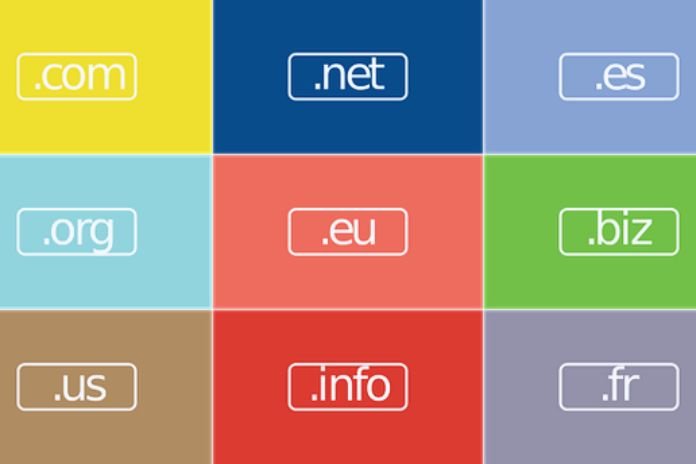Impact Of Local Extensions (.fr, .be, .uk, etc.) On Positioning

Whether you are a beginner or a true expert in web development, there is generally a problem when choosing the domain name. Many people select domain names and extensions that do not add value to their websites. The thoughtful choice of extending your web platform is a crucial element in its natural referencing. But more notably, local extensions (.fr, .be, .uk, etc.) play a significant role in the local referencing of a company or brand. In this article, we study their impact on positioning.
How Is A Domain Name Composed?
The domain name is an essential component of an Internet address. With your domain name (NDD), people interested in your business can reach your site directly. Thanks to your NDD, you can be listed and visible on different search engines. Therefore, the domain name’s importance no longer needs to be demonstrated.
Their choice can work in your favor or against you. In the web address “www.sitename.xxx”, the domain name is the part located in the middle, “site name”. The prefix “www” stands for World Wide Web. As for “.xxx”, this is the top-level domain. Its choice is decisive in terms of SEO. In the address bar of your search engine, you can enter an address without preceding it with “www”. On the other hand, the “.xxx” remains essential.
Domain Name Is Located To The Left Of The Dot.
The domain name to the left of the dot is the second-level domain name. It is also called SLD (second-level domain). It is a string of alphanumeric characters consisting of only letters or a combination of letters and numbers. SLDs can also contain one or more hyphens in addition to alphanumeric strings. The domain name on the left can represent your company’s name, activity, store, brand, etc.
Extension Representing The Right Part Of The Domain Name
The right part of the domain name is also called the suffix or TLD (Top Level Domain). It is also considered the top-level domain. The choice of local extensions is an element which determines the quality of the domain name and its natural referencing, mainly in the local SERPs. As you will have understood, there are several types of domain extensions. These vary depending on:
- The nature of the website;
- the targets sought;
- the guidelines in force in a given topographical region.
The most popular domain extension today remains .com. The .org, .net, and .info extensions also have excellent popularity ratings. But local extensions like .fr, .uk, .it, .be, .us, etc. also have a lot of followers.
Local Extensions: Relationship With The SLD Domain Name
The choice of a domain name and its extension go hand in hand. One always goes with the other because the final result of your NDD must remain coherent, original, available, short, readable and easily remembered. If you choose an ambiguous domain name, your prospects will not find you easily.
Furthermore, they may even have the wrong extension or name and be redirected to another site. In the worst-case scenario, people searching for your site will abandon the query partway through because their attempts were unsuccessful. Knowing and applying the rules for domain names will also allow you to avoid two-way NDDs.
These domain names can indeed harm your brand image. Local extensions, in particular, make it easier to reference a website. For example, a user who knows the name of a company can type that name in the search bar and obtain several suggested results. He will primarily choose the result whose extension is local, mainly if he knows that the company has developed its activity in a particular geographical area.
The Different Types Of Domain Extensions That Exist
There are mainly three main types of domain extensions, each meeting specific needs:
- generic domain extensions;
- geographic domain extensions;
- specific domain extensions.
Generic Domain Extensions (gTLDs)
Wildcard extensions consist of a minimum of three characters. They are based on a classification by activity. The most popular generic extension is “.com”. But other gTLDs are also among the most used extensions in this category: .org, .net, .xyz, etc. The family of generic domain extensions can be broken down into three subtypes: sponsored, unsponsored and restricted.
Sponsored Extensions (TLDs)
TLDs are types of generic extensions managed by sponsors. These sponsors are organizations that set up a usage charter for a community they represent. The most popular sponsored extensions known to date are .edu (education sector), .mil (military), .gov (for governments), .arero (for the aviation sector), etc.
Unsponsored Extensions
Unsponsored extensions are managed by ICANN (Internet Corporation for Assigned Names and Numbers). This organization centralizes the management of non-sponsored generic extensions open to the public without restrictions. Among these extensions, we can cite: .com, .org, .net.
Restricted Extensions
The last types of generic extensions, restricted TLDs, are similar to the previous two. However, their particularity lies in proving that the company’s activity complies with the eligibility criteria before choosing the extension. Examples of restricted wildcard extensions include .pro and .name.
Local Or Geographic Extensions
Local extensions always consist of at least two characters. They most often refer to the location of the company’s territory or country. Regional or geographic extensions are abbreviations representing each country based on the ISO 3166 standard. The geographic extension for France is .fr. For Belgium and the United Kingdom, we have the.be and .uk extensions, respectively.
Therefore, You must choose your local extensions based on your objectives, particularly in your target market. For example, if you want to promote your business in Italy, you can opt for the local extension .it. If you are targeting the French market and your business is geographically located in France, the best choice is to opt for the .fr extension.
Two fundamental reasons justify this choice. Firstly, this will inevitably have a direct impact on the natural referencing of your site. The latter will automatically be classified among international sites. In addition, the French Association for Internet Naming in Cooperation (AFNIC) will govern your geographical extension. This means that you will comply with the regulations in force in France.
Some local extensions can only be used if they reside in the associated country. The .fr, for example, cannot be used outside of France. On the other hand, other local domain extensions are public and can, therefore, be acquired by anyone, regardless of residence. This is the case of .co, which belongs to Colombia. The .co geographic extension is one of the most used TLDs in the world today.
Specific Domain Extensions
Domain-specific extensions aim to make extension systems more malleable. They were born under the aegis of ICANN and began to emerge in 2012. Specific domain extensions allow companies to have original and customizable TLDs and domain names. You can use them if you want to differentiate yourself on the web. In this family of extensions, we also distinguish several categories:
- generics (Example: .work, .guru);
- community (Example: .green);
- brand names (Example: .kinder, .apple);
- themes (Example: .gym, .hotel);
- geographical area.
Local extensions can be considered specific domain extensions. Today, many brands have created theirain extensions as “.brand” with ICANN.
Why Should You Use Local Extensions (.fr, .be, .uk, etc.)?
Natural referencing is a process that can be very long. Reaching the top position on the first page of results on Google sometimes takes a lot of work and a lot of patience. Furthermore, SEO is a process that most often turns out to be extremely expensive when the main positioning criteria are applied:
- Net-linking
- Search for relevant keywords
- Technical optimization
- Production of optimized content, etc
These natural referencing criteria represent a significant cost in terms of time and budget. On the other hand, the price of a local SEO strategy is much less effective. This is also one of the fundamental reasons some SEO experts recommend using local domain extensions.
Advantages Of Local Extensions And Local SEO Over General SEO
SEO refers to all the techniques used to make a website’s content visible through Internet users’ queries in search engines. You must regularly create content to fuel your strategy to aim for the top positions on Google for decisive search queries from Internet users. You should know that in most sectors of activity, it is tough to overtake well-known companies.
Typically, these companies occupy the top positions on the first page of Google results for specific queries. However, if certain establishments sometimes surpass large companies, it is mainly thanks to local SEO. By adopting local extensions and other local SEO techniques, only competitors close to your catchment area will attempt to overtake you on local queries.
You can produce more qualitative content, such as practical guides or expert blog articles, to distinguish yourself from competitors. In addition to using local extensions and creating qualitative content, you must also optimize your digital profiles on social networks and Google My Business.
Local Extensions: The Criteria For Choosing
Choosing local extensions is easy. But in reality, several strategic parameters must be considered to select a domain extension, whether generic or geographical. We invite you to discover the fundamental criteria for choosing your local extensions.
Your Location
Opting for a geographic extension is best if your website targets a local market. Indeed, local extensions adapt better to local markets. On the other hand, if your website aims to reach an international audience, local extensions will only sometimes be suitable. Your choice of geographic extension should reflect the positioning of your business.
Your Budget
Local domain extensions in high demand on the market can drive up the price of your domain name. But they can also influence the positioning of your website in the SERPs. With some hosts, the .fr domain name costs several hundred euros at certain times of the year. The main thing is to find the extension that suits your activity according to the desired audience and at the best price. There is no need to spend much money choosing a domain extension. It is better to consider the effect of this geographic extension on your local SEO.
Local Extensions: Optimization Of Natural Referencing
Succeeding in generating significant natural traffic to a website is often seen as a mission impossible for some companies. But it’s easier to get organic traffic when using local extensions. These are usually compatible with marketing targeting and the companies’ field of activity. For example, the .be extension will enormously boost your positioning on Google if your business is in Belgium.
Surprisingly, Google states that the choice of domain extension does not have a particular impact on the SEO ranking of websites. But in practice, local extensions increase the chances of appearing among the first search results. However, it would help if you also remembered to apply Google’s general SEO recommendations to optimize your SEO correctly. And you, how do you understand the impact of local extensions on the positioning of a website on Google?
Read Also: How To Adapt Your Digital Marketing To The Holiday Season?






